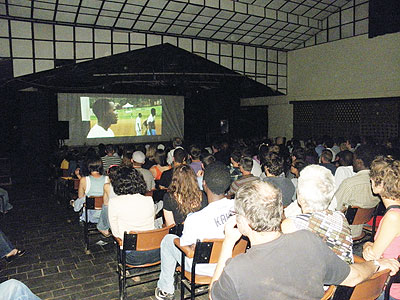Award-winning movie, “Kinyarwanda” was recently screened to hundreds of cinema-goers at Ishyo Arts Centre’s Theatre Hall in Kigali.


Award-winning movie, "Kinyarwanda” was recently screened to hundreds of cinema-goers at Ishyo Arts Centre’s Theatre Hall in Kigali. The film, which contains powerful and horrific stories about the 1994 Genocide against the Tutsi, won the Audience Choice Award in the World Dramatic Cinema category during last year’s prestigious Sundance Film Festival in Park City, Utah, U.S.A."Kinyarwanda” provides a very sensitive telling from a perspective that dramatically differs from other Rwandan Genocide related movies, such as "Sometimes in April”. In many ways, "Kinyarwanda” could be perceived as Genocide light. Additionally, the story also shows the way Muslims and Christians came together as a Muslim leader issued a fatwa forbidding participation in the slaughter and making mosques places of refuge while churches had become slaughter houses.It is a narration of a beautiful, touching, inspiring and painful story, about mainly the involvement of religions during the 1994 Genocide against the Tutsi. Ishmael Ntihabose, a local filmmaker and the Executive producer of the "Kinyarwanda”, says: "I wanted to show religious leaders the wrong decisions taken during the Genocide.”"The film had to be produced because there is an important message that still has to be told in this re-construction process,” he emphasises.Reactions to the movie…."The movie is good and shows us how Moslems protected their neighbours during the 1994 Genocide,” says a one Jean de Dieu Uwimana."I thought it was a very interesting movie, unfortunately we didn’t get to see all of it but it was quite emotional and provocative, I would like to see the end of it,” commented Sean Greg."Kinyarwanda” was directed by Alrick Brown, with Ishmael Ntihabose as Executive and Producer. The main stars are; Cleophas Kabasiita (Francine), Edourd Bamporiki (Emmanuel) and Cassandra Freeman (Lt. Rose Kabuye). The screening was made possible by Goethe-Institut (GI), a non-profit German cultural association operating in Rwanda.


